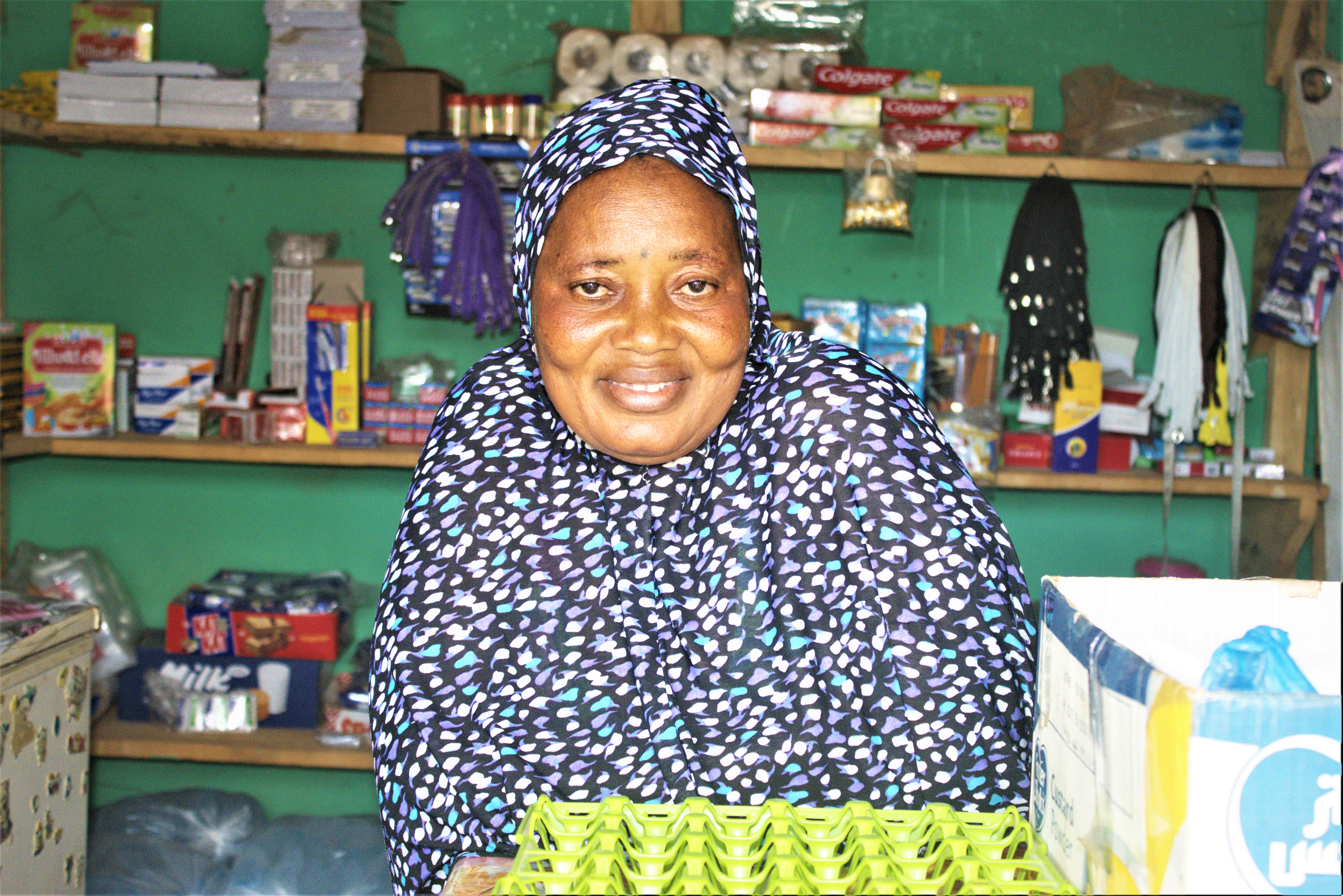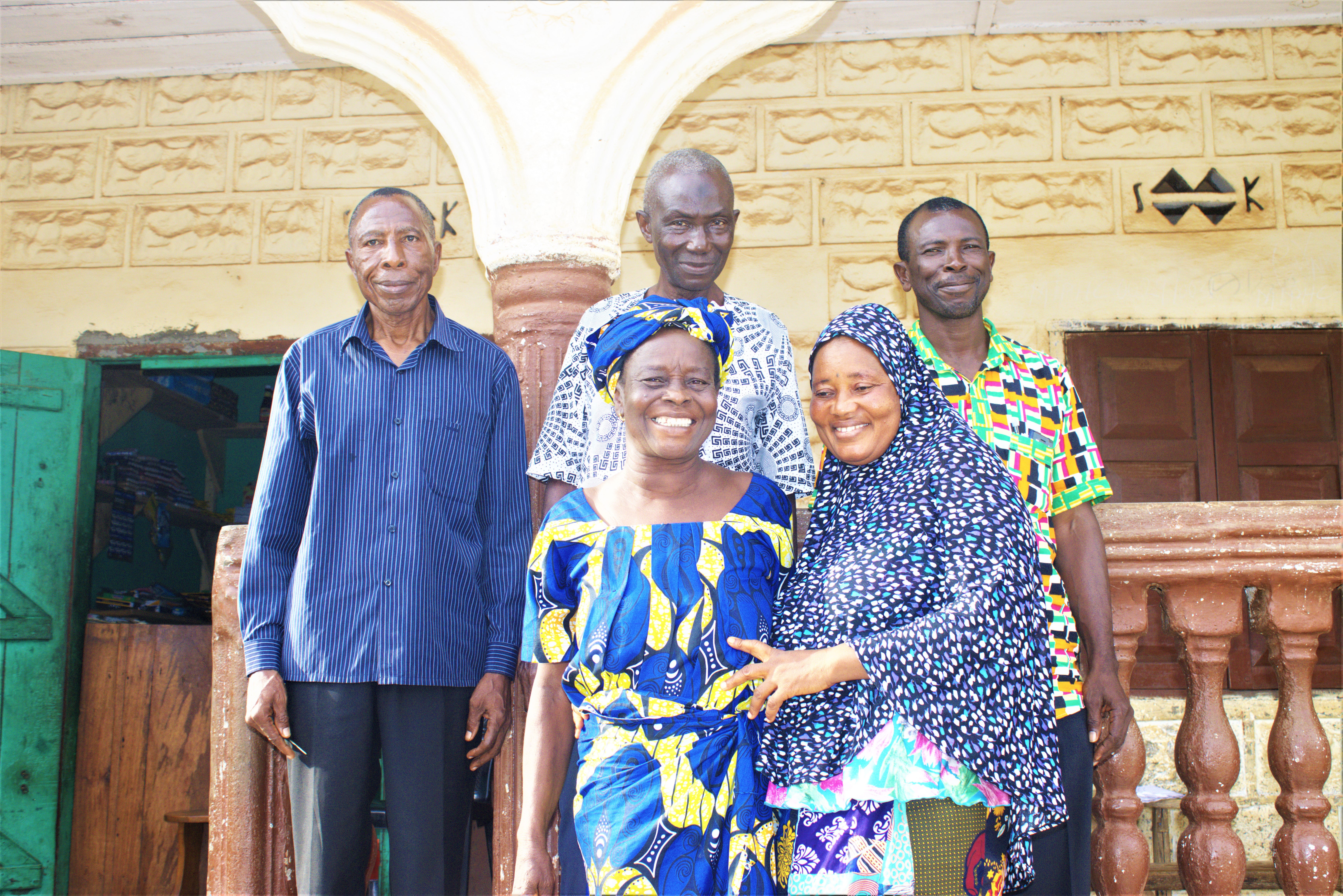Sierra Leone
Gendered Voices Recovering from Abuses: UNDP, Irish Aid Strengthens Decentralized Human Rights Structures
July 1, 2022

Photo showing 45-year-old-Aminata Dauda with a beam of smile in front of her new home
45-year-old Aminata Dauda from Kenema District was forced into child marriage at age 16, and endured the terror and pain of being a fourth wife.
After the death of her husband in 2018, her experience was one of being alienated by her late husband’s relatives and less of a feeling of grief. Her rights to own one of her husband’s five houses were denied by relatives of the late husband, accusing her of not contributing anything to her husband’s estates.
Intimidated by these accusations, Aminata left her late husband’s home and struggled to make a living with her three children. A few months later, she decided to file a legal action in court.
Thanks to UNDP/Irish Aid support to the Kenema District Human Rights Committee (KDHRC), a decentralised structure comprising forty-five Civil Society Organizations (CSOs) championed and advocated for Aminata’s rights to own one of her late husband’s estates - working with the district’s local and magistrate courts, Human Rights Commission Eastern Regional Office, and a human rights lawyer.
“At the local court in Kenema, I have heard and witnessed countless cases of human rights abuses like mine. And having interacted with KDHRC for almost four years now, I am also using my voice to encourage several women who are faced with similar circumstances to challenge estates matter in the Local or Magistrate Court,” Aminata informed.
Today, Aminata owns one of the estates of her late husband in Kenema, living with her mother and two children, while her eldest daughter is currently enrolled at the University of Sierra Leone in the country’s capital Freetown pursuing her university degree.

Photo showing Aminata Dauda and her mother flanked by some members of the Kenema District Human Rights Committee
In Bombali District, Madam Theresa Koroma was subjected to inhumane treatment and banished from Kagbaneh village, Biriwa Chiefdom, after being accused of killing a young boy by witchcraft, found guilty by an herbalist.
Unlike Aminata Duada from Kenema, Theresa Koroma from Bombali District suffered a set of human rights abuses - her house and shop were vandalised by unknown persons, and as a result, she suffered degrading treatment that resulted to communal discrimination and low self-confidence.
Between 2019 and 2021, Aminata lived out of Kagbaneh Village until the matter was reported to the Human Rights Commission of Sierra Leone (HRCSL).
In 2021, banished Theresa Koroma was successfully resettled to Kagbaneh Village by the Human Rights Commission of Sierra Leone, assisted by the Bombali District Security Committee (DISEC).
Since the establishment of the District Human Rights Committees and the creation of the HRCSL by an Act of Parliament in 2004, UNDP remains a credible development partner that is committed to strengthening these decentralized structures and enabling mechanisms that assure the protection and promotion of human rights and investigation of allegations of human rights violations and other complaints filed by individuals.
Under our current project entitled “Support to the Capacity Strengthening of the Human Rights Commissions of Sierra Leone,” further support given to the HRCSL so far in 2022 includes training of 32 members of the District Human Rights Committees (DHRCs) on international instruments (CEDAW, Maputo Protocol, UN Resolution 1325 and 1820), engagement of regional stakeholder on the Third Cycle UPR Recommendations, drafting instructions on the revised HRCSL Act developed and submitted to the Attorney General and Minister of Justice, reviewed the HRCSL policies among others.
“At the local court in Kenema, I have heard and witnessed countless cases of human rights abuses like mine. And having interacted with KDHRC for almost four years now, I am also using my voice to encourage several women who are faced with similar circumstances to challenge estates matter in the Local or Magistrate Court,”Aminata Dauda informed.

 Locations
Locations